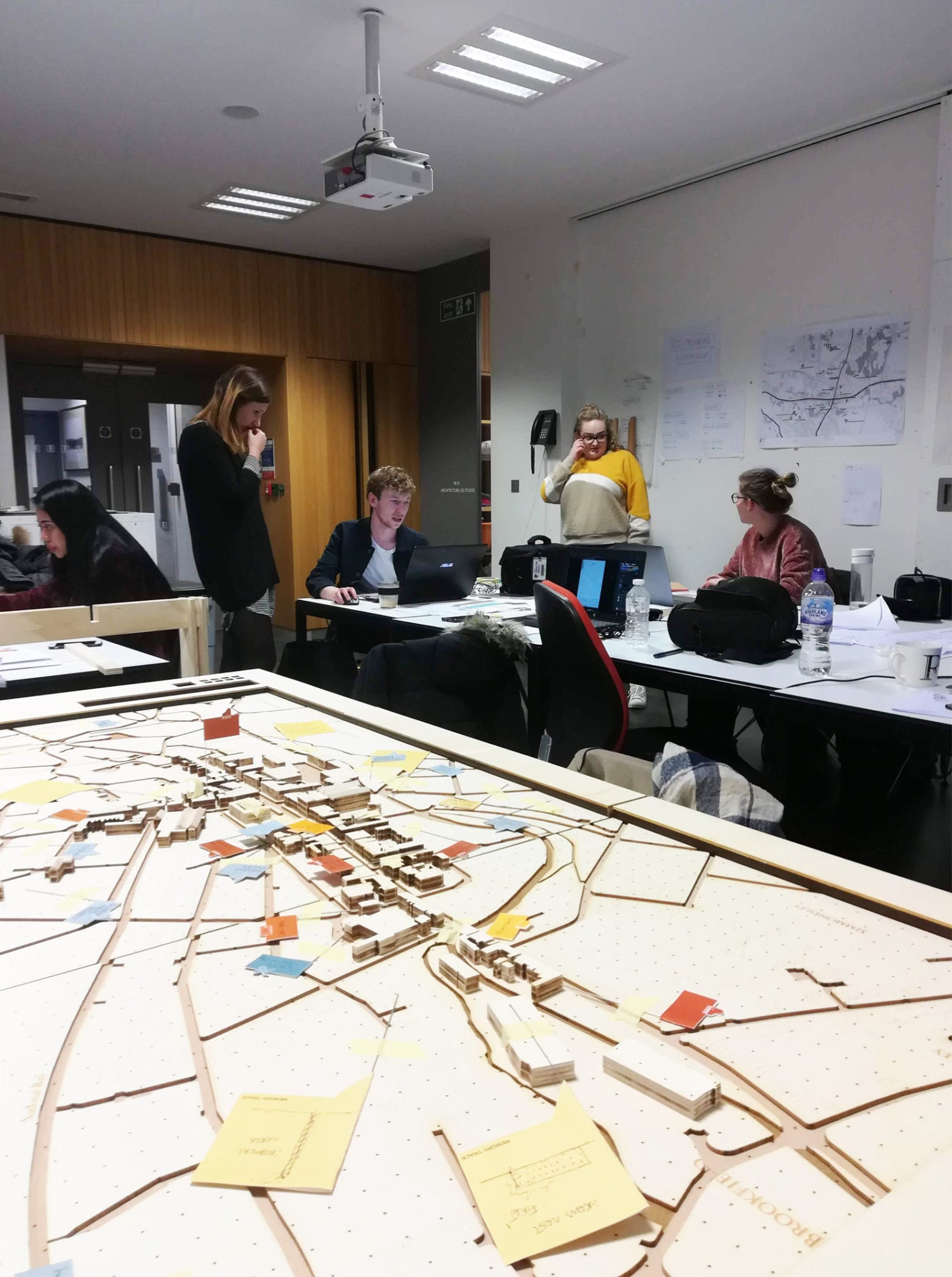Earlier this year The Kasbah in Grimsby was added to the ‘heritage at risk’ register by English Heritage. Almost 800 miles away the fish processing factories in the venetian lagoon of Chioggia also lay derelict and unloved.
Although the former port has been rather neglected over recent years with the once active fishing fleets almost gone and unique architectural gems fading away, the rich history of the latter has been a victim of its own success in many ways; with masses of tourists still flocking to visit the lagoon and its outlying islands. Notwithstanding this, the perilous future for both of these once vibrant coastal towns, although for rather different reasons, lie in question.
Drawn to this sense of impending architectural loss Masters studio lecturer, Bryan Davies from Seven Architecture, decided to focus his attention on a potential new lease of life for these two coastal towns via his teaching at Sheffield University School of Architecture. With his keen sense of technological innovation within historic environments, plus an interest in reimagining heritage assets, he set about to brief his students…
The brief: Over the next few months Bryan’s 13 students will be focusing their attention on these two sites; making comparisons between them and proposing an inspirational development project for either one, taking into consideration any issues to build-out their scheme.
The study trips: To kick start the project the students visited Great Grimsby and, in particular, the group of buildings next to the royal dock known locally as the Kasbah. This area is made up of a close-nit labyrinth of mostly disused properties related to the fishing industry. At one time it was a bustling neighbourhood of shops, banks, post offices, pubs that were central to what was the world’s biggest fishing port and the most important example of industrial scale fishing in the UK. Students were shown around this unique heritage asset by key stakeholders: ABP (Associated British Ports), the Ice Factory Trust (a registered charity set up to actively campaign for a sustainable future for the ice factory and some of the heritage buildings in the area) and the North East Lincolnshire conservation team.
The group then crossed Europe and headed to the ancient port of Chioggia in the south of the venetian lagoon. The tour took in the renowned fish market, various boat repair workshops and also the derelict fish processing factories. Here the generations of fishermen and their old sailing boats provide a hive of daily activity for the fish market – still a charming site today, however the undertones of a lack of investment, the absence of real diversity for future generations and the neglected buildings is a cause for concern in continuing this historic tradition.
Next steps: The students will develop their architectural proposals until June 2019 when they will be examined as part of their main architectural submission to meet the RIBA criteria for the Masters degree. Their work will also be displayed at the Sheffield School of Architecture Annual exhibition at the Arts Tower.










